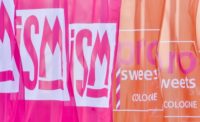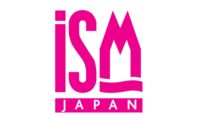Organizers for ISM, the world’s largest fair for sweets and snacks, expect to see a strong presence of organic offerings at the 2021 fair in light of the global COVID-19 pandemic.
Koelnmesse said the 2017 ISM featured 282 exhibitors with organic products, while the 2018 fair featured 362 exhibitors, or about 25 percent. At the 50th edition of ISM in 2020, a record-setting 425 companies presented organic products, corresponding to 34 percent growth between 2017 and 2020.
Koelnmesse says 175 exhibitors offering organic products have registered for ISM 2021. Based on previous shows, ISM organizers expect that figure will more than double over the coming months.
Among the first-time exhibitors in the organic segment are Bäckerei Evertzberg (Germany), BSCG (the Netherlands), Gusania (Lithuania), Incom d.o.o. – LEONE Chocolate (Slovenia), LNS Trade (France), Mipama (Poland), Moulins de Kleinbettingen (Luxemburg), Nut Vinograd (Russia) and Thai B.B. Fruit (Thailand).
Companies with expertise in the organic segment will be joined at ISM 2021 by young companies and businesses that have expanded their lineups to include organic items. Koelnmesse says a variety of organic products will be showcased, ranging from chocolate and sweet sandwich spreads to cakes and biscuits. Organic snack items such as vegetable chips, energy bars and dried fruit are also set to be presented.
New products will also be on display in the Trend and Natural Snacks section in Hall 5.2. Furthermore, the new ProSweets Ingredients segment of ProSweets Cologne, also in Hall 5.2, will deliver new approaches and product solutions.
While organic has been a trend for many years, the coronavirus pandemic is contributing to growth in the organic segment. According to the Association for Consumer Research (GfK), the demand for organically-cultivated food rose significantly during the first three months of the pandemic than the turnover of the food trade as a whole.
But outside of the pandemic, the organic market continues to grow. According to the Research Institute for Organic Farming (FiBL) and the Agricultural Market Information Association (AMI), household expenditure on organic products has more than doubled since 2010. In 2018, sales of organic food in Europe reached €40.7 billion ($48.04 billion), with €37.4 billion ($44.14 billion) in the European Union.
The organic snacks segment in particular is experiencing enormous growth because consumers are attempting to balance work-intensive lives with staying healthy. According to a report from the Global Organic Snacks Market, which was published by KBV Research, the global organic snack market is expected to generate $23.7 billion by 2025, which corresponds to a market growth of 14.09 percent CAGR during the forecast period.




